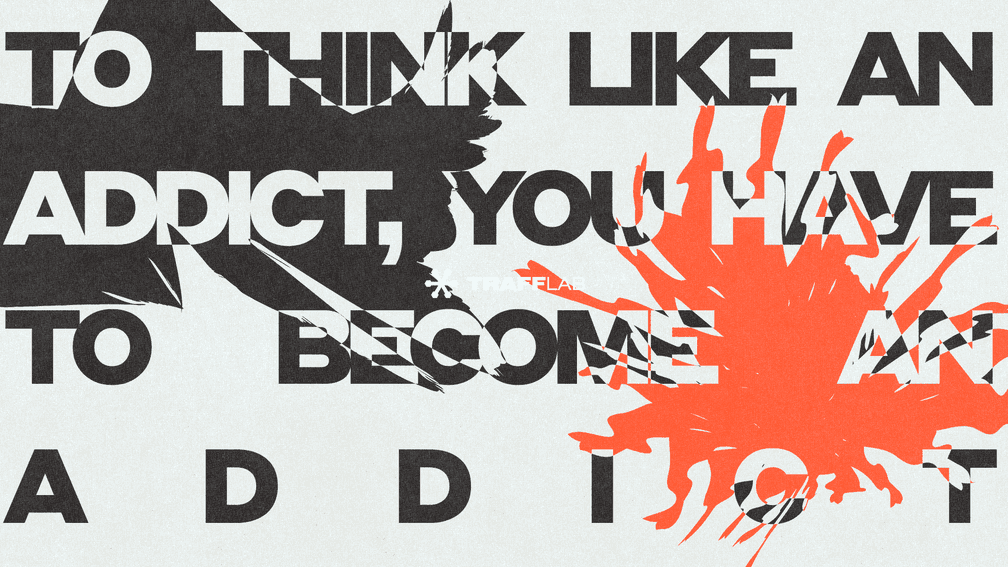
To think like an addict, you have to become an addict
Why do people take risks? Dive into the world of excitement
Have you ever wondered why people like to gamble? What attracts them if there are only 2 options at stake - to win or lose all their money? To think like an addict you have to become an addict, so let's dive a little deeper.
What is excitement? The emotional state of excitement is the expectation of achieving success (regardless of the actual odds). This emotional high is often associated with uncertainty, gaming passion, risky moments and potential danger. The main feature of gambling is the risky nature associated with it and the thirst for material wealth. Usually this feeling awakens not in everyday life, but when faced with games and dangerous situations.
Over time, the constant desire to experience excitement can turn into a real addiction: a gambling addict (a person with a gambling addiction) is already difficult to stop, and he often cannot cope with it alone.
Excitement in history: from ancient times to the present day
Our ancestors were also familiar with gambling and gambling addiction. It is believed that the first game of chance in history was the game of dice, known to many ancient civilizations. This game is mentioned in ancient Indian texts such as the Mahabharata and Rig Veda, where Vedic verses warn about the dangers of such a game. Even the ancient Greeks were not immune to excitement. Legends tell how, during the Trojan War, Palamedes invited the troops to relax by playing dice.
The famous historian Plutarch makes mention of the Persian Queen Parysatis, who was passionate about this game. Gambling was especially popular among the Germans, where the loser could become a slave, losing his freedom. In modern times, many European cities, such as Baden-Baden and Wiesbaden, have become famous for their casinos.
In the 15th century, with the advent of wood and copper engraving, the first playing cards were born, created by artists in Spain and Germany for entertainment and fortune-telling. Initially, they were more often used by scammers, until the book Liber vagatorum was published in 1494, which revealed their tricks. These games were often played in taverns, leading to the first legislation regulating such establishments in England in 1541.
We won’t go too deep, you can read about this on third-party sources, and you can find out about the most gambling countries on our blog, now we are interested other.
Why and how does gambling addiction occur?
Each of us has experienced this emotion at least once in our lives, but only a few have a chance of acquiring a characteristic dependence. What increases your chances of becoming addicted:
- Availability of gambling. Of course, these days absolutely everyone can download an online game: poker, betting, slots, etc.
- Active advertising of online casinos and betting sites on the Internet.
- The general confidence of society is that those who do not take risks do not drink champagne.
- Envy of those who are richer and broadcasts this to the general public. Who hasn’t at least once thought about the fact that they need more and more money after scrolling through Instagram, especially public figures? And if you have already acquired good capital, your needs have probably increased, so money still seems small.
- Incorrect upbringing, which encourages play as an opportunity to escape problems within the family.
Gambling addiction matures in the same way as any other addiction (smoking, alcohol, drugs): a person experiences an emotion (during which dopamine is released) several times and begins to get hooked on it. In our case, excitement = happiness, this is what strengthens the brain, and the ban on playing begins to be perceived as an obstacle to getting pleasure.
The impact of passion on advertising and audiences
All this leads to the fact that the game comes to the fore, the excitement from the gameplay overshadows everything else, and the gambler needs more and more effort to enjoy this process.
Everything is so simple and arranged. Why are we telling you about this, you ask. The answer is obvious: to make effective advertising, you need to understand how the processes of influencing the audience work.
We would also like to recommend you some great literature that will help you delve even deeper into the thinking of addicted people:
- Fools Die, Mario Puzo
A well-known book about the world of gambling, the film industry and mass communications. The action takes place in large US cities, where the main character spends most of his time in gambling establishments. After a tragic incident, the character settles into a large hotel and regularly gets into trouble. A gripping plot and a dramatic ending.
- Gambling 102, Michael Shackleford
In 19 sections, the author explains the basic principles of the main games of chance. The tips, techniques and tactics presented here help to acquire fundamental skills and improve results for newcomers to the world of gambling.
- Casino Royale, Ian Fleming
Author of novels about the famous superspy James Bond. A tournament is held at the casino, in which the anti-hero had to earn enough money to compensate for unsuccessful investments. British secret agent James Bond, in turn, is obliged to ruin him. At the beginning he loses his entire amount, but then he is given a second chance to win.
Conclusion
Gambling is more than just entertainment, it is part of our culture, history and, unfortunately, an addiction problem for many. By understanding the mechanisms behind this phenomenon, we can make informed choices and help others understand the risks. For those who want to deepen their understanding of the art of gambling and the psychology behind it, the proposed books will be a real discovery. Remember, knowledge is power. If you have any questions or want to discuss a topic in more detail, do not hesitate to contact our managers :)
29.09.2023